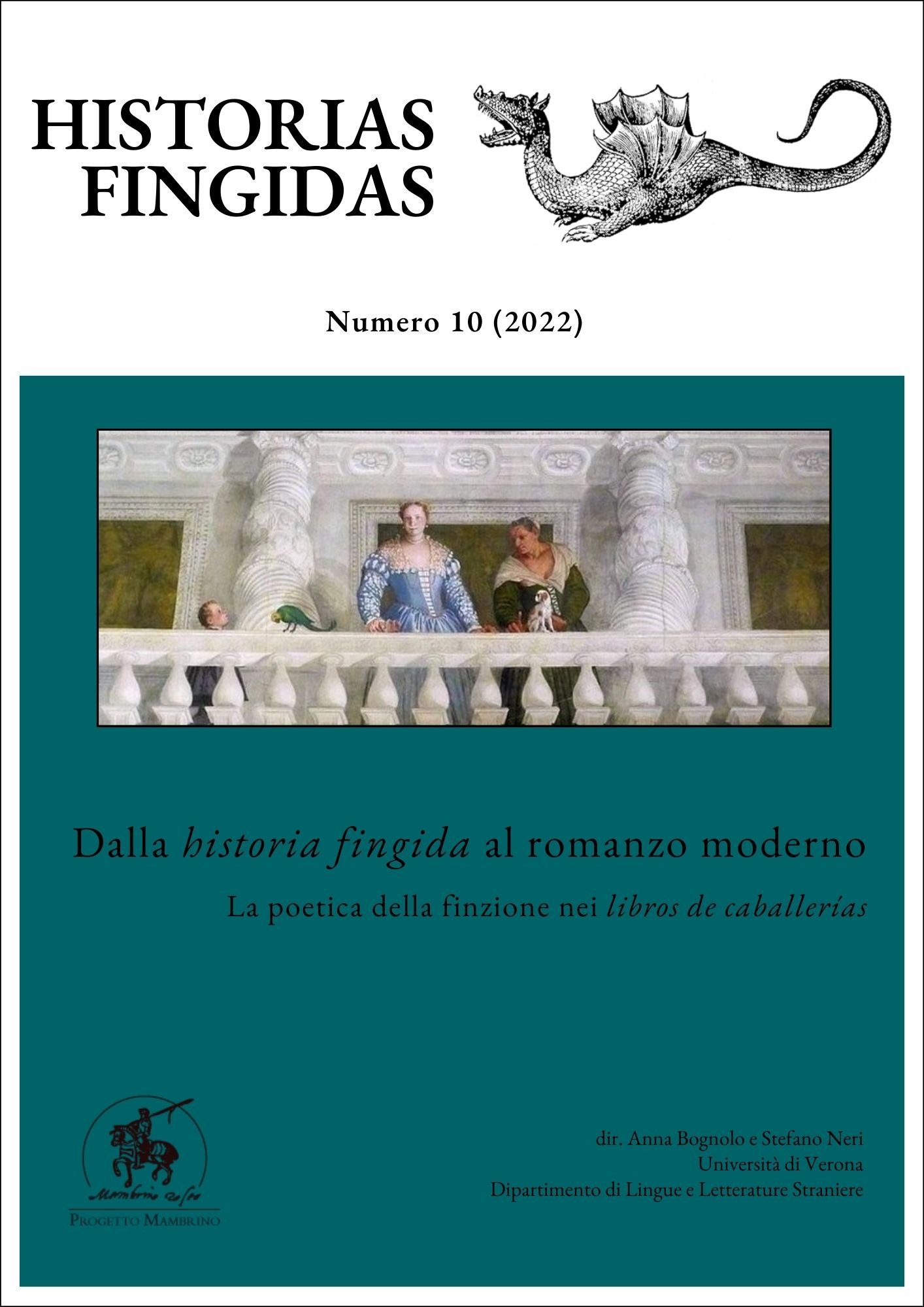Spanish romances of chivalry and history. Another look at a dialogue from the prologues of Montalvo and Feliciano de Silva
DOI:
https://doi.org/10.13136/2284-2667/1234Keywords:
Libros de caballerías, Rodríguez de Montalvo, Feliciano de Silva, Crónicas, Biografías, Poética del relato, PrólogosAbstract
The condition of the books of chivalry with respect to historical truth was formally raised from the prologue of the inaugural work of the genre in the printed tradition. Subsequently, it was one of the axes of the subsequent debate, in a moral key. And from there it prevailed in a long critical tradition, leaving another aspect in the dark, on which this article focuses: that of the problems raised by the need to establish an acceptable poetics for an extensive story in Romance prose. From this perspective, a review of the relationships established by the books of chivalry with the different modalities of historiography is proposed, at a time when the historical genre is also in a process of renewal since the initial decades of the 16th century.
Downloads
Published
Issue
Section
License
Copyright (c) 2022 Pedro Ruiz Pérez

This work is licensed under a Creative Commons Attribution-NonCommercial 4.0 International License.
Authors must attend to the following conditions:- Authors will mantain the copyright of their work and leave to the journal first publishing rights, simultaneously licensed by a Creative Common License - Attribution - No Commercial Use that permits other researchers to share the work indicating the intellectual property of the author and the first publishing in this journal not for commercial use.
- Authors can adhere to other license agreements not exclusive to the distribution of the published version of their work (for example: include it in an institutional archive or publish it in a monografic book), with the agreement of indicating that the first publishing belongs to this journal.
- Authors can disseminate their work (for example in institutional repositories or their personal website) before and during the submission procedure, as it can lead to advantageous exchanges and citations of the work (see also, The Effect of Open Access).

